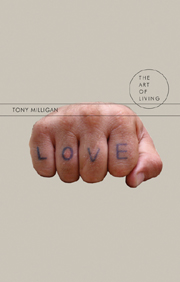7 - What can we love?
Summary
When we love someone in the intimate and sexualized sense, we value them in a special way. There may still be room for apartness, solitude and quiet contemplation (as much room as other commitments will allow) but generally we want to be with that person and we want to share things with them: activities, laughter, sex, time. We see them in the light of our own past as well as in the light of what we know about their past and, above all, we see them as unique and irreplaceable. They are beings whose loss would cause us to grieve and, at least in part, our grief when faced with their actual loss results from the fact that the everyday desires and concerns that we have for our own well-being have become entangled with our desires and concern for their well-being; the one has become bound up with the other. This is what sharing a life with someone is like. The prospect of never seeing them again, never being close to them again, is truly dreadful. It is awful in ways that go beyond even the awfulness of the loss of our own life.
Although love of this sort, and love in general, leaves us vulnerable to loss, I have nevertheless suggested (and to some extent argued) that it is a basic human need. We need to love and to be loved if we are to live well.
- Type
- Chapter
- Information
- Love , pp. 116 - 138Publisher: Acumen PublishingPrint publication year: 2011

